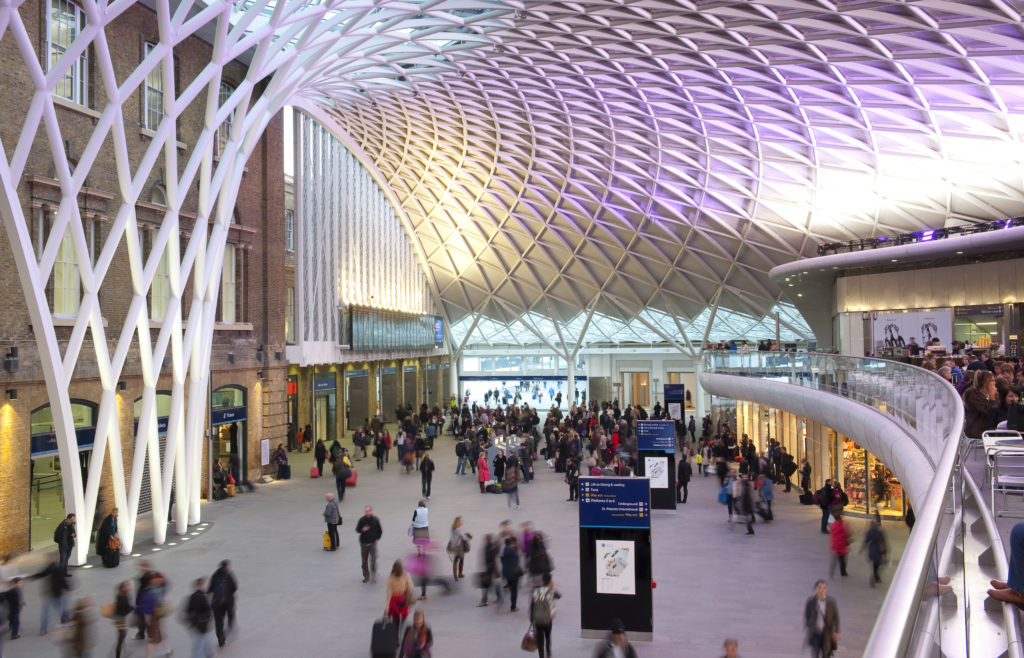SPONSORED POST

There is no doubt that rail companies have not always got everything right and people feel intense frustration when the service doesn’t deliver for them. Too often in recent years, that has been the case as how the railway is structured has reached the limits of what it can deliver. That is why the time is right for a once-in-a-generation change to the railway system. The status quo cannot remain if we are to have a railway that is fit for the future.
Millions more passengers now travel by rail every day and there are thousands more trains and new carriages on the tracks compared to the just 20 years ago. The increased popularity of rail is good news, especially as it helps reduce road congestion and pollution. But it means that Britain’s rail network faces pressures that were never envisaged when today’s structure was introduced.
Too often the debate about the future structure of Britain’s railways gets lost in wider political arguments. Finding the solutions that deliver the railway Britain needs over the next two decades requires a deep and dispassionate look at what passengers, communities and the country require.
It is about recognising that the railways are the economic arteries of our towns and cities and provide a vital service relied upon by people and businesses nationwide. In short, the railway is too important for anything else. That is why rail companies are putting forward to the Williams Review, set up to review the structure of Britain’s railways, a radical set of proposals – a real alternative to the current system of franchising.
These proposals are based on months of conversations with passengers, businesses and communities up and down the country. They draw on the collective wisdom of men and women with decades of experience running the railway. They use analysis of railways around the world.
The result is a long-term plan which we believe will deliver real, lasting change – the greater accountability and better value for money people expect and deserve. A new approach designed around the needs of passengers, communities and the businesses who depend on rail freight to trade. A new partnership railway.
In some of our major towns and cities, where commuters depend on the railway every day, there would be democratically accountable, Transport for London-style single-branded services, with an integrated transport body given greater control. This proposal has already won the backing of a number of local and metro leaders, including the Mayor of Greater Manchester Andy Burnham. A new partnership between the railway and the local communities it exists to serve.
On other routes, tough targets combined with clear incentives would be introduced for companies to deliver the outcomes their customers want, replacing today’s tightly specified contracts. This would give operators the freedom to innovate to improve, while only rewarding them for good performance. A new partnership between the public and private sectors in rail.
On long distance routes, where there is enough demand, there would be more choice for passengers, with operators having to try and attract people, for example by offering quicker more comfortable journeys or faster Wi-Fi. And if passengers weren’t satisfied with their journey they could vote with their wallets by changing to a different operator. A new partnership between train companies and their customers.
Overseeing this new system would be a new national body, independent of government, that would act as the glue binding the whole thing together. It would hold the industry’s feet to the fire; ensure the people running the tracks and the trains are all pulling in the same direction for the customers they serve.
And crucially, a fully reformed fares system with decades old regulation updated would make ticket buying easier for all and enable a best fare guarantee. The regular commuter simply tapping in and out with the confidence of a price cap. The business person buying an intercity ticket on their smartphone on route to the station. The occasional traveller who today is bamboozled by the range of fares on offer presented instead with straightforward choices.
This plan is designed to deliver what the country expects: a world-class railway that is based on what will work for passengers, communities and the wider country. It responds to the reality that there is no one-size-fits-all approach. It strikes the right balance of public sector involvement and specification, independent oversight and accountability and more choice and stability for passengers. It is a plan for every part of Britain. A new partnership railway.
So, while we await the outcome of the Williams Review, we will be taking this plan around the country to understand how the different elements can work in different areas to deliver the change passengers and communities want to see. The industry has listened. We understand the need for change. Now we have the chance to get on with it and deliver a railway fit for the future.



More from LabourList
Exclusive: Poll shows Starmer more trusted than PM on Middle East crisis
Revealed: Poll shows 1 in 4 Tory voters says Rayner faces ‘smear campaign’
‘Ignore the noise – the soft left is alive and well in Open Labour and beyond’